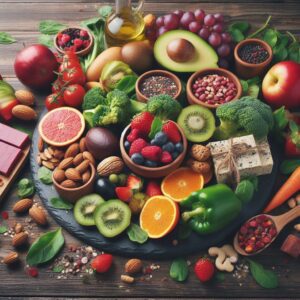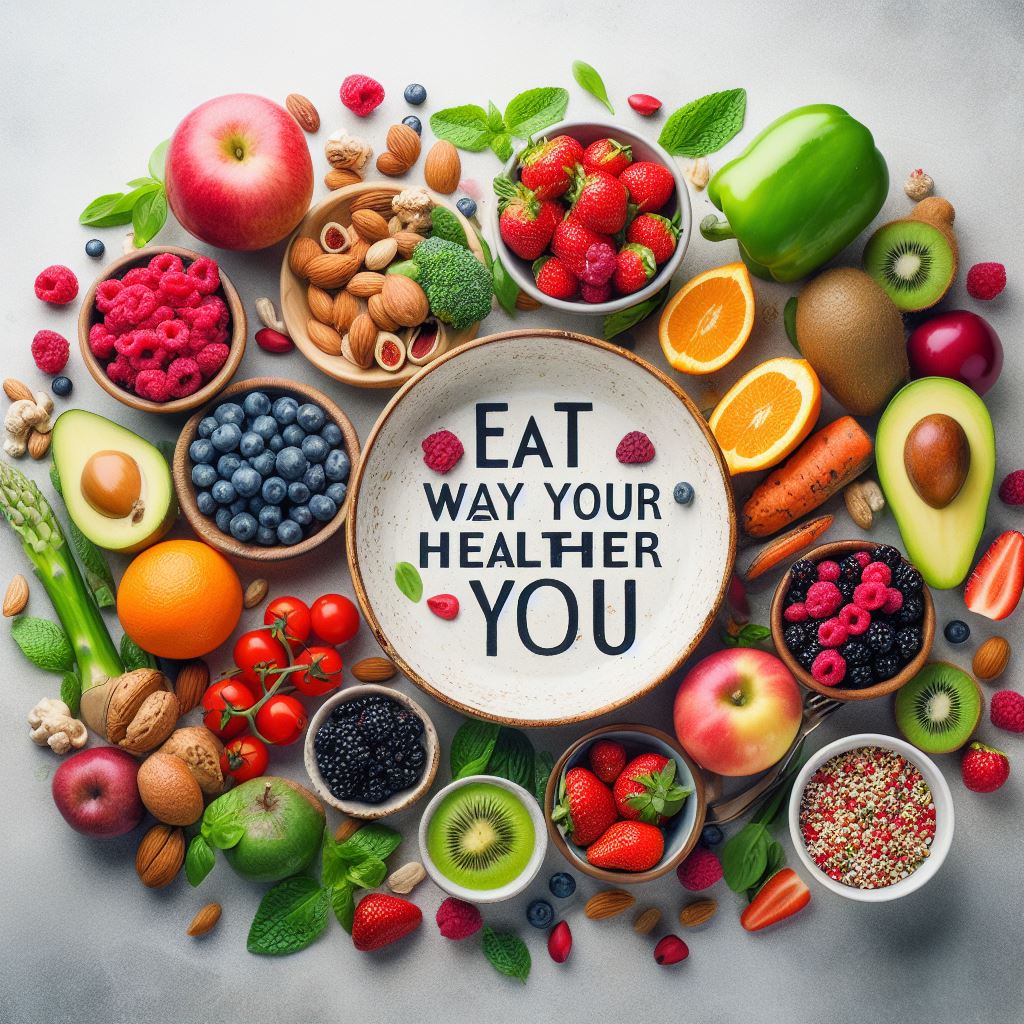Eat Your Way to a Healthier You: Superfoods for a Balanced Lifestyle
Introduction
In today’s fast-paced world, maintaining a healthy lifestyle is more important than ever. One of the key aspects of achieving optimal health is through a balanced diet that includes nutrient-rich superfoods. Superfoods are packed with essential vitamins, minerals, and antioxidants that provide numerous health benefits. This article aims to explore some of the best superfoods that can help you eat your way to a healthier and more vibrant life.
1. What are Superfoods?
Before we delve into the specific superfoods, let’s understand what makes them so special. Superfoods are natural foods that are incredibly rich in nutrients, making them highly beneficial for our overall well-being. They are often loaded with antioxidants, fiber, healthy fats, and various vitamins and minerals. Incorporating these nutrient powerhouses into your diet can help support your immune system, boost energy levels, and promote better digestion.
2. Blueberries: Tiny but Mighty
Blueberries are a prime example of a superfood that packs a punch. These tiny, blue gems are rich in antioxidants, particularly anthocyanins, which give them their vibrant color. Antioxidants help combat free radicals in the body, reducing oxidative stress and inflammation. Additionally, blueberries are a great source of vitamin C, vitamin K, and fiber, all of which contribute to heart health and improved cognitive function.
3. Spinach: Popeye’s Favorite Green
Spinach is a leafy green vegetable that deserves a prominent spot on your plate. It is an excellent source of iron, which is essential for maintaining healthy blood and preventing anemia. Moreover, spinach contains high levels of vitamin A, vitamin C, and folate, supporting vision, immune function, and cell division.
4. Quinoa: The Ancient Grain
Quinoa has gained immense popularity in recent years for its outstanding nutritional value. Unlike other grains, quinoa is a complete protein, containing all nine essential amino acids. It is also gluten-free and rich in fiber, making it a perfect choice for those with gluten sensitivities or digestive issues.
5. Avocado: Creamy and Nutrient-Dense
Avocado is a creamy and delicious superfood that is packed with heart-healthy monounsaturated fats. These fats help lower bad cholesterol levels and reduce the risk of heart disease. Additionally, avocados are an abundant source of potassium, which plays a vital role in maintaining healthy blood pressure.
6. Chia Seeds: Tiny Seeds with Big Benefits
Chia seeds might be small, but they are incredibly nutritious. These seeds are rich in omega-3 fatty acids, which are beneficial for brain health and reducing inflammation. They also provide a good amount of calcium, magnesium, and phosphorus, promoting bone strength and overall well-being.
7. Broccoli: A Cruciferous Powerhouse
Broccoli is a cruciferous vegetable that boasts an impressive nutrient profile. It contains sulforaphane, a compound known for its cancer-fighting properties. Broccoli is also a good source of vitamin K, vitamin C, and fiber, contributing to bone health and digestive function.
8. Sweet Potatoes: Nutrient-rich and Flavorful
Sweet potatoes are not only delicious but also highly nutritious. They are rich in beta-carotene, an antioxidant that converts to vitamin A in the body, supporting healthy vision and immune function. Additionally, sweet potatoes provide complex carbohydrates, making them an excellent energy source.

9. Salmon: The Omega-3 Rich Fish
Salmon is a fatty fish loaded with omega-3 fatty acids, particularly EPA and DHA. These essential fats are beneficial for heart health, reducing inflammation, and supporting brain function. Including salmon in your diet can also improve skin health and promote a healthy complexion.
10. Kale: A Supercharged Leafy Green
Kale has gained significant popularity as a superfood for a good reason. It is exceptionally rich in vitamins A, C, and K, along with various minerals and antioxidants. Incorporating kale into your diet can help strengthen your immune system and contribute to healthy bones.
Conclusion
Incorporating superfoods into your daily diet can be a game-changer for your overall health and well-being. The nutrient-dense properties of these foods provide a wide range of health benefits, from supporting your immune system to enhancing brain function and promoting heart health. So, why not take a step towards a healthier you by embracing the power of superfoods?
FAQs
- Can superfoods alone make me healthier? While superfoods are incredibly nutritious, a balanced diet and a healthy lifestyle play essential roles in overall health.
- Are there any side effects of consuming superfoods? Superfoods are generally safe for consumption, but moderation is key, as excessive intake may lead to certain health issues.
- Can children also consume superfoods? Yes, superfoods are beneficial for people of all ages, including children, as they promote healthy growth and development.
- Do superfoods help with weight loss? Some superfoods, such as chia seeds and avocados, can aid in weight management due to their fiber and healthy fat content.
- Are there any budget-friendly superfoods? Yes, some superfoods, like spinach and sweet potatoes, are affordable and can be easily included in your diet.
